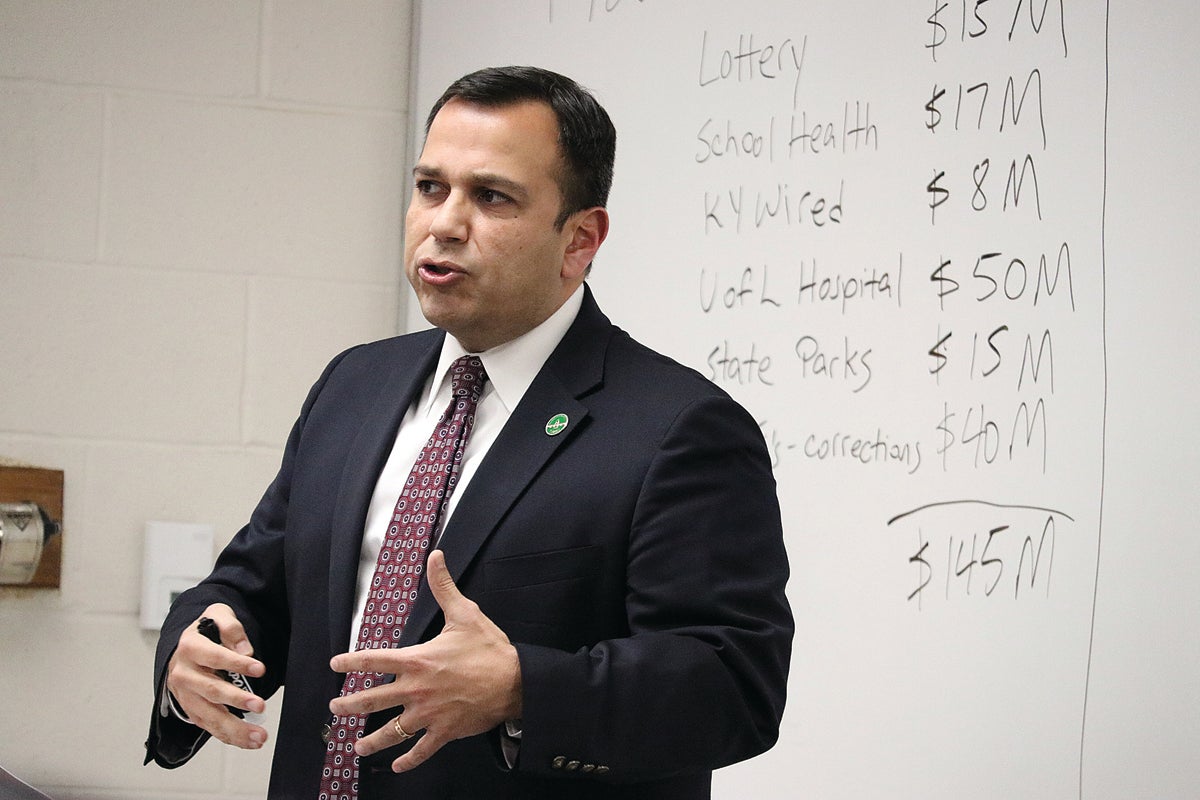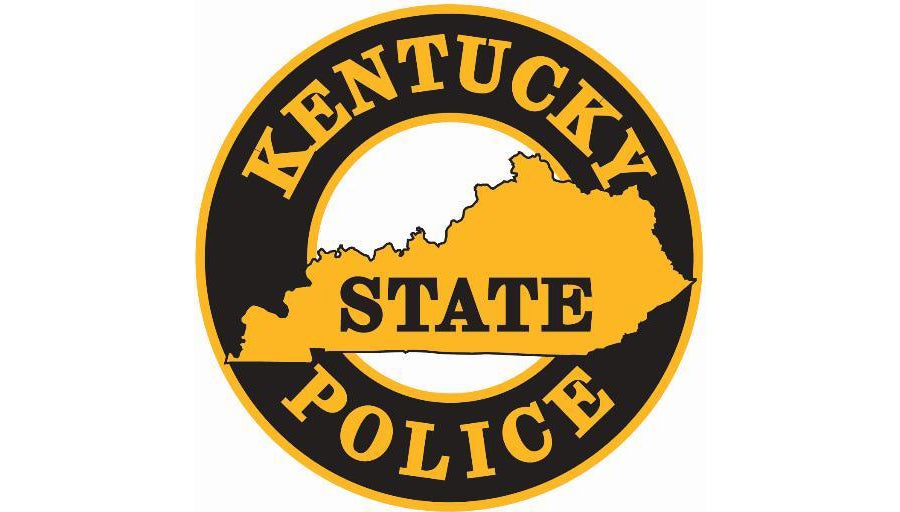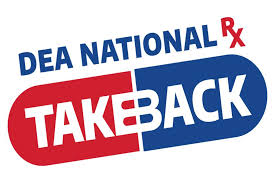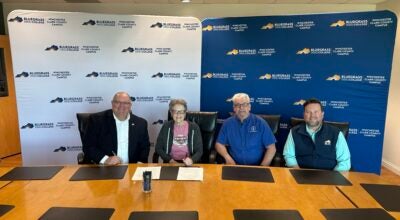Alvarado hosts legislative update for 2020 session
Published 11:51 am Wednesday, January 8, 2020

- State Sen. Ralph Alvarado hosted his annual legislative update Monday night. (Photo by Whitney Leggett)
With the 2020 regular session of the Kentucky General Assembly convening Tuesday, state Sen. Ralph Alvarado took the opportunity to update local constituents this week.
Alvarado hosted his annual legislative preview at Bluegrass Community Technical College Winchester-Clark County Campus Monday night, touching on a number of topics including the next two biennium budgets and potential shortfalls, pensions, infrastructure and some of his prefiled bills.
Alvarado said the annual meeting with Clark residents is a way for him to make sure the public remains educated and involved.
“A lot of people don’t really have an understanding of what happens in Frankfort,” Alvarado said. “I always swore I’d come in and make sure people are educated on what’s happening.”
Alvarado acknowledged the state was in a bit of a “honeymoon phase” right now coming off of a recent gubernatorial election that saw Andy Beshear elected over former governor Matt Bevin.
“We’ve got a lot of things to discuss, a lot of things to fix in the state,” he said. “There’s been a lot of talk about civility and cordiality, and that’s great. That’s important, but I think there’s a bit of a honeymoon phase right now. We’ll see how things progress. I think there have been signs of conflict already.”
He noted some of the Beshear’s early actions, including reversing Bevin’s executive order regarding spiking pensions and revamping the Kentucky Board of Education.
“Everyone there has been very partisanly appointed, and that’s a concern,” Alvarado said. “Those have to be approved by the Senate to stay in office. We will see what happens with that.
“We’ve also all seen about the 1115 (Medicaid work requirement) waiver being turned around. As a health care guy, that has been a concern.”
Alvarado said pensions are a looming topic in Frankfort, and he spent the bulk of the beginning of the meeting laying out the issues at hand.
“That’s something that’s going to be hanging over our heads for many, many years to come,” he said.
He noted action taken in a special session over the summer that allows quasi-governmental agencies, like health departments, “a sort of exit ramp to get out of the pension system.”
Agencies have until April to decide if they want to stay with the current pension system or finance their way out over the next 30 years, he said.
“That’s about a sixth of our overall problem just within the state employee or KERS system,” he said. “There’s a lot more work to be done. I can say our county and city employee system, our state police and our state KRS system, all of them are improved.
“The numbers were pretty abysmal. KRS was only about 13 percent funded. For every dollar that we owed these retirees, we had 13 cents in the bank to pay them. It’s up to almost 19 cents to the projection now. So we’ve actually been putting money in. We made a lot of structural changes to those systems back in 2013 and those are beginning to pay off. The KTRS, we’ve not had any structural changes to those systems. They had a negative cash flow in KTRS of about $300 million and that was last year despite the highest funding ever.
Alvarado said currently the problem is there are more retirees than there are teachers in the system. He said there are about .8 teachers per retiree in the system right now.
“So for every four teachers, there are five retirees out there,” he said. “That means if Social Security is upside down, this is much much worse and we’ve got a major problem…. Something has to be done structurally to change it. We can’t sustain it.”
He said about 15 percent of the state budget is spent on pensions, and he doesn’t see that number reducing any time in the near future.
“So if you imagine your own personal budgets, if for every $100 after tax that you have at your disposal, $15 had to go automatically to a credit card payment, that’s kind of the situation we’re looking at,” he said. “If you had to borrow money against a retirement system and having to put that money in, it’s pretty ominous.”
Alvarado spent a good portion of the evening talking about the upcoming budgets and some the shortfalls the state is facing.
He said the good news is in 2019, the state beat budget expectations by about $194.5 million.
But, fiscal year 2020 doesn’t look as good, Alvarado said.
The 2020 budget projection indicates only about $26.7 million in excess funds. Preliminary projections for 2021 are much higher at $227 million, and 2022 is projected at $420 million.
“A lot of the reason we got those funds in for the state are corporate income tax collection, which went up in the state,” he said. “Sales and tax receipts went up. Property tax receipts went up. Cigarette tax collection increased. Our lottery revenues also went up.”
He said coal severance is down significantly, though, to about $42 million.
Road funding is up by about .5 percent, but the state is facing a “true crisis in our infrastructure right now,” he said.
“We got the federal toll credits, which we’ve been using to help fund a lot of our road budget in the past,” he said. “Those are expiring at the end of the year, and we’re looking at hundreds of millions of dollars coming out of our road fund.”
He said one way to increase those road funds receipts would be a higher gas tax, which is something being considered, especially since neighboring states have recently raised their gas taxes by around 15 cents.
“That’s something that has been discussed for the last three or four years,” he said. “But the question is whether there’s enough willpower in the House to vote that to the Senate for potential consideration.”
He said Clark County has several road projects he would like to see receive funding, including widening U.S. 60 to four lanes, the Seventh Street project and completion of the Bypass project.
He said the legislature is also considering ways to codify the current structure for road funding to take politics out of the process and score projects based on need.
Alvarado said other issues up for consideration this session are a school safety bill, Tobacco 21 legislation, surprise billing, banning sanctuary cities, aligning the presidential election cycle with the state election cycle, tax modernization and voter ID laws.
He said he plans to file a bill to make paper ballots available at all polling places throughout the state, and noted some of the bills he’s sponsoring this session, including allowing essential services personnel to case absentee ballots. Essential services personnel include firefighters, law enforcement, EMS, paramedics, emergency responders, doctors and nurses, and a variety of other jobs.
He is also sponsoring a bill that requires insurance companies to notify homeowners of changes to their policy. Currently, insurance companies can make changes without notifying homeowners.
Another bill he prefiled would ban non-compete clauses for doctors so patients will be more likely to be able to continue seeing their desired physician even after the doctor leaves a practice.
In addition to his update, Alvarado fielded questions from the audience about a variety of topics including the potential for early voting legislation, red flag laws, casino gambling and increased cigarette taxes.






